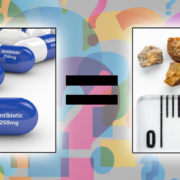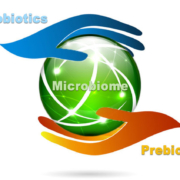Fasting: Another Piece of the Puzzle
Fasting is gaining popularity. Actually, periods of complete abstinence from food within a 24-hour cycle is what really seems to be gaining in popularity, but this study doesn’t address intermittent fasting. It examines fasting for a specific period of time before a dietary change—in this case, to the DASH diet. We don’t know if the results would be the same if someone were switching to a ketogenic diet or a paleolithic diet. These are the major results of the study we began examining on Tuesday.
The Results
- The five-day fast prior to beginning the DASH diet appeared to have positive effects on blood pressure. There was an average drop of eight points in systolic BP and a reduction in the use of medication to lower blood pressure.
- Subjects adhering to the DASH diet lost weight as well. However, it was not the reduction in weight loss that caused the drop in systolic blood pressure based on their analysis.
- The immunome, a portion of the total proteome I talked about a few weeks ago, improved. While the exact mechanism is not known, the positive changes in immune proteins appeared to have a positive effect on lowering blood pressure.
- Researchers also discovered genetic differences between those who responded to the fast and the subsequent DASH diet by lowering their blood pressure and those who did not. The key seems to be in the bacteria that produce short-chain fatty acids. Fasting was identified as a way to increase the bacteria producing those SCFAs.
What Does It Mean?
What are we to conclude? With only 71 total subjects, there’s not a lot of data to generalize to entire populations, but here’s what I think is important.
First, fasting does have a role to play in the health of our microbiome; it also has role to play in our immune function. It’s not completely clear why these changes can occur, but research shows that they do. It may be that eliminating food for a period of time helps the naturally occurring bacteria to function better.
Second, it doesn’t seem to have anything to do with intermittent fasting. It very well may be that complete abstinence from food could get you similar benefits if you were to withhold food for 18 or 20 hours a day and only eat in a very small block of time. But until fasting for a specific amount of days is compared with hourly intermittent fasting, we just don’t have the best answers yet.
The Bottom Line
Fasting, however you define it, appears to have some beneficial effects. If you find a way that fits into your lifestyle, there doesn’t seem to be any reason that you shouldn’t do it unless you have a metabolic disorder and must eat. For example, if you have problems with your blood sugar or take meds that must be accompanied by food, fasting may not be for you.
Here’s my plan: now and then, I’m going to try a reduction to 500 to 800 hundred calories per day for one to three days. That seems to be supported by the most science. It also appears to benefit immune function the most.
Anticipating questions from those doing a ketogenic or paleolithic diet, is the diet after the fast important? Maybe if you select the right foods, such as going vegan during those fasting days, you may get the positive changes in your microbiome. What would happen if you then went on a ketogenic or paleo diet after that? We just don’t know whether the changes would last. This study provided a few pieces of the puzzle, but there’s much we still need to know.
What are you prepared to do today?
Dr. Chet
Reference: Nat Comm (2021)12:1970. https://doi.org/10.1038/s41467-021-22097-0









